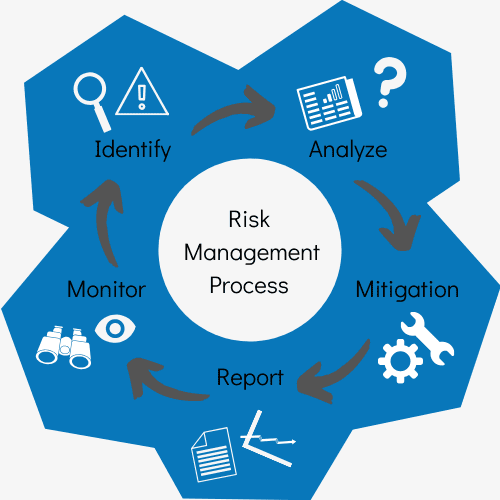Understanding the Importance of Risk Management in Modern Business Practices
Understanding the Importance of Risk Management in Modern Business Practices
Blog Article
The Importance of Recognizing the Importance of Risk Management in Various Industries

The Core Concept of Risk Management and Its Purpose
Risk Management, the cornerstone of lots of industries, rests on the recognition, analysis, and mitigation of uncertainties in a business environment. It is an important technique that permits organizations to protect their assets, credibility, and total survival. By correctly identifying possible threats, services can create strategies to either prevent these dangers from taking place or lessen their effect. The assessment procedure includes examining the probability and possible seriousness of these risks. The reduction procedure involves designing strategies to minimize their prospective influence once risks have been identified and evaluated. This process is cyclical and recurring, ensuring that businesses are planned for the ever-changing nature of Risk in various industries. The primary objective, therefore, is to promote strength among unpredictabilities.
Advantages of Implementing Risk Management in Organization Workflow

Revealing the Function of Risk Management in Different Industries
While every market confronts its one-of-a-kind collection of dangers, the application of Risk Management methods continues to be a common denominator in their search of sustainability and development. In the healthcare market, Risk Management involves ensuring person security and information defense, while in money, it involves mitigating investment risks and guaranteeing regulative conformity (importance of risk management). Building companies concentrate on worker safety, task delays, and budget overruns. In the technology industry, firms mitigate cybersecurity threats and modern technology obsolescence. Eventually, the duty of Risk Management across industries is to identify, assess, and reduce risks. It is a necessary part of tactical planning, allowing organizations to secure their assets, make best use of possibilities, and achieve their goals.
Real-life Instance Studies Showing Successful Risk Management
To recognize the relevance of Risk Management in these many industries, one can seek to a number of real-life circumstances that illustrate the successful application of these measures. In the energy sector, British Petroleum established Risk mitigation intends post the 2010 Gulf of Mexico oil spill. They carried out far better safety procedures and more stringent laws which webpage significantly reduced more mishaps. In money, Goldman Sachs successfully navigated the 2008 financial dilemma by determining possible mortgage-backed safeties risks early. Toyota, publish the 2011 earthquake in Japan, changed its supply chain Management to minimize disruption More hints threats. These instances show how sectors, picking up from dilemmas, properly used Risk Management strategies to decrease future risks.
Future Patterns and Developments in Risk Management Strategies
Cybersecurity, when a peripheral worry, has catapulted to the leading edge of Risk Management, with techniques concentrating on action, prevention, and detection. The combination of ESG (Environmental, Social, Governance) factors into Risk Management is another expanding trend, mirroring the enhancing acknowledgment of the duty that social and environmental risks play in service sustainability. Hence, the future of Risk Management exists in the fusion of advanced technology, cutting-edge methods, and an all natural technique.
Verdict
In verdict, comprehending the importance of Risk Management throughout a spectrum of industries is vital for their longevity and success. Ultimately, effective Risk Management adds to more lasting and resilient services, highlighting the value of this practice in today's very affordable and vibrant organization atmosphere.
While every sector discover here faces its special collection of risks, the application of Risk Management approaches continues to be an usual in their quest of sustainability and growth. In the health care market, Risk Management entails making sure individual security and information defense, while in financing, it entails mitigating investment risks and making sure governing compliance. Ultimately, the function of Risk Management throughout industries is to identify, evaluate, and mitigate risks. These situations demonstrate how industries, finding out from situations, efficiently applied Risk Management approaches to decrease future risks.

Report this page